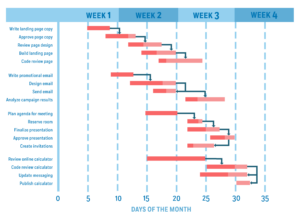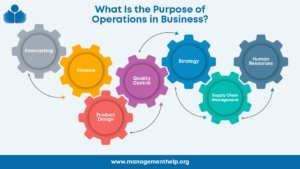Supply Chain Management (SCM) is the backbone of any successful business. It ensures the efficient flow of goods, services, and information from suppliers to customers. By managing everything from raw materials to finished products, SCM is crucial in reducing costs, increasing efficiency, and meeting customer demands.
This article aims to explain the fundamentals of SCM, highlighting its importance in today’s business environment and breaking down its key components. Understanding SCM is essential for optimizing operations and maintaining competitiveness in a global market.
Definition of Supply Chain Management
Supply Chain Management (SCM) coordinates and oversees all activities producing and delivering goods and services, from raw materials to the final product. It encompasses the entire process of planning, sourcing, manufacturing, logistics, and providing products to consumers.
SCM also involves managing the flow of information and finances between all stakeholders, including suppliers, manufacturers, distributors, and retailers. The ultimate goal of SCM is to optimize efficiency, reduce operational costs, and improve the overall customer experience. By ensuring seamless collaboration and communication across the supply chain, businesses can minimize delays, enhance product quality, and stay competitive.
The Importance of Supply Chain Management
Supply Chain Management (SCM) is critical for businesses of all sizes because it ensures the smooth flow of goods and services from suppliers to customers. Efficient SCM reduces operational costs by optimizing inventory, transportation, and production processes.
It also improves customer service by ensuring timely deliveries and product availability, which boosts customer satisfaction. In today’s competitive landscape, businesses with solid supply chains gain an edge by responding quickly to market demands.
SCM is especially vital in global markets, where it helps manage international suppliers, tariffs, and shipping, supporting the interconnectedness of economies and enabling businesses to scale efficiently.
Key Components of Supply Chain Management
- Planning: Accurate demand forecasting and effective inventory management are crucial for aligning supply with customer needs and minimizing costs.
- Sourcing: Selecting reliable suppliers and building strong relationships ensures a steady flow of quality materials, reducing delays and inefficiencies.
- Manufacturing: Streamlining production processes ensures products are made efficiently, meeting quality and quantity targets while minimizing waste.
- Logistics: Coordinating transportation, warehousing, and distribution is vital for timely delivery, cost efficiency, and customer satisfaction.
- Return Management: Managing returns, refunds, and recycling efficiently reduces waste, enhances customer service, and contributes to sustainability efforts.
Types of Supply Chains
Traditional Supply Chains
Traditional supply chains focus on the movement of physical goods, starting from raw material suppliers and ending with the final delivery to customers. This includes manufacturers, distributors, and retailers working together to ensure efficient production and delivery.
Service Supply Chains
Service supply chains manage the flow of services rather than physical products. They emphasize coordinating information, labor, and processes to deliver services like healthcare, IT support, or financial services, ensuring timely and quality service delivery.
Global Supply Chains
Global supply chains manage the flow of goods and services across international borders. They involve dealing with multiple suppliers, managing international logistics, navigating customs regulations, and mitigating risks like currency fluctuations or geopolitical issues.
Effective SCM Approaches: From Lean to Digital Supply Chains
Several strategic approaches to Supply Chain Management (SCM) are tailored to a company’s needs, budgets, and long-term goals.
- Lean Supply Chain Management: Focuses on eliminating waste in areas like excess inventory and inefficient processes to create a streamlined, cost-effective supply chain.
- Agile Supply Chain Management: Emphasizes quick responses to changes in demand and market conditions, with flexible production and supplier contracts.
- Six Sigma: A data-driven approach that reduces defects and variability in processes, using statistical methods to improve efficiency.
- Total Quality Management (TQM): Focuses on continuous improvement and increasing customer satisfaction by enhancing quality throughout the supply chain.
- Resilient Supply Chain Management: Builds supply chains that can withstand disruptions by mitigating risks and diversifying suppliers.
- Green Supply Chain Management: Aim to minimize environmental impact through sustainable procurement and promoting social responsibility.
- Digital Supply Chain Management: Utilizes technologies like AI, machine learning, and IoT to improve forecasting, inventory, and logistics.
Supply Chain Management vs. Logistics
Supply Chain Management (SCM) encompasses the end-to-end process of managing the flow of goods, information, and finances across the entire supply chain, from suppliers to customers. Logistics is a subset of SCM, primarily focusing on the efficient transportation, warehousing, and distribution of products.
While logistics deals with the movement and storage of goods, SCM is broader, including sourcing, production, inventory management, and even return processes. Logistics ensures timely and cost-effective delivery, while SCM aims to optimize the entire chain for maximum efficiency, reduced costs, and improved customer satisfaction. Together, they provide smooth operations in the supply chain process.
Technologies Used in Supply Chain Management
Modern Supply Chain Management (SCM) relies heavily on advanced tools and technologies to improve efficiency and decision-making. Enterprise Resource Planning (ERP) systems integrate various business processes, helping companies manage inventory, orders, and finances.
Warehouse Management Systems (WMS) optimize the storage and movement of goods, while Artificial Intelligence (AI) automates decision-making, forecasts demand, and identifies inefficiencies.
Blockchain technology ensures transparency and traceability across the supply chain, reducing fraud and improving trust. Digital transformation enhances communication, speeds up workflows, and lowers operational costs.
Data analytics is crucial, offering real-time insights into supply chain performance. This enables companies to make informed, data-driven decisions. Together, these technologies help supply chains become more agile, efficient, and resilient.
Challenges in Supply Chain Management
Managing supply chains presents several challenges, including disruptions due to natural disasters, labor shortages, or transportation issues. Demand variability, where sudden shifts in customer demand lead to stockouts or overstock, is another common issue. Global sourcing adds complexity, as dealing with multiple suppliers across borders introduces risks related to currency fluctuations, tariffs, and geopolitical tensions.
External factors such as economic downturns, trade wars, and pandemics like COVID-19 can significantly disrupt operations. To overcome these challenges, companies can build resilience by diversifying suppliers, adopting advanced technologies for better visibility, and investing in contingency planning to adapt swiftly to unforeseen events.
The Future of Supply Chain Management
Several key trends are shaping the future of Supply Chain Management (SCM). Sustainability is becoming a top priority, with companies adopting eco-friendly practices to reduce waste and lower their carbon footprint. Automation and artificial intelligence are transforming supply chains’ operations, enabling real-time data analysis, predictive maintenance, and streamlined logistics.
SCM also adapts to changing consumer demands, including faster delivery expectations and personalized experiences. Technological advancements such as blockchain are enhancing transparency and traceability. There’s a growing emphasis on ethical sourcing, with businesses focusing on sustainable, socially responsible practices throughout the supply chain.
Careers in Supply Chain Management
Supply Chain Management offers diverse career opportunities across various industries, including roles like Supply Chain Analysts, Logistics Managers, Procurement Specialists, and Operations Managers. These professionals optimize the goods, services, and information flow within organizations.
Essential skills required for a career in SCM include analytical thinking, problem-solving, negotiation, and knowledge of logistics software and data analysis tools. A bachelor’s degree in Supply Chain Management, business, or logistics is often essential, with advanced degrees or certifications like CSCP (Certified Supply Chain Professional) being helpful.
The demand for SCM professionals proliferates as businesses increasingly prioritize efficient operations and global sourcing strategies. As technology advances and international trade expands, SCM experts are in high demand to manage complex supply chains and enhance organizational competitiveness.
Conclusion
Supply Chain Management (SCM) is the coordinated process of managing the flow of goods, information, and finances from suppliers to customers. It’s essential for optimizing efficiency, reducing costs, and meeting customer demands. Key components like planning, sourcing, manufacturing, logistics, and return management are critical to a successful SCM strategy.
In today’s competitive and fast-paced business environment, mastering SCM enables companies to respond quickly to market changes, build resilience, and gain a competitive edge by improving service and profitability.
 Sections of this topic
Sections of this topic















